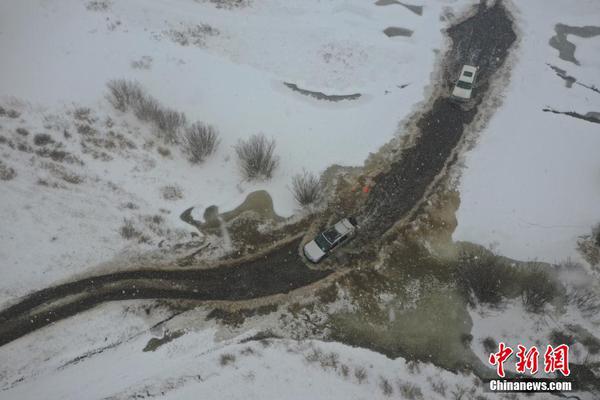

The Japanese American National Museum, 100 N. Central Ave. in Little Tokyo, will host a screening of “Resistance at Tule Lake,” a new documentary from director/producer Konrad Aderer that tells the long-suppressed story of 12,000 Japanese Americans who dared to resist the U.S. government’s program of mass incarceration during World War II, on Saturday, Feb. 10, at 2 p.m.
Branded as “disloyals” and re-imprisoned at Tule Lake Segregation Center, they continued to protest in the face of militarized violence, and thousands renounced their U.S. citizenship. Giving voice to experiences that have been marginalized for over 70 years, the film challenges the nationalist, one-sided ideal of wartime “loyalty.” A panel discussion with the filmmakers will follow the screening.
Tule Lake was one of ten American concentration camps that were hastily built to house the 120,000 persons of Japanese descent who were forcibly removed from their West Coast homes following Japan’s bombing of Pearl Harbor. Located in Modoc County, Tule Lake was the most conflict-ridden of the ten camps. In its first year of operation, it was beset by labor unrest, including strikes over a lack of promised goods and salaries and a mess hall workers’ protest. Then, in 1943, it was designated as Tule Lake Segregation Center and essentially became a prison camp for those perceived as “disloyal” to the U.S.

Tule Lake was chosen to be a segregation center partially because of its size and capacity, but also because the infamous “loyalty questionnaire” — an awkwardly worded document circulated by the Army in all 10 camps in an attempt to determine who among the prisoners were patriotic citizens and who were not — was mishandled by authorities at the camp, leading to more unrest, turmoil among the inmates, acts of civil disobedience, and the largest number of presumed “disloyals” of any of the camps.
Tule Lake soon became a maximum-security prison as “disloyals” from other camps were relocated there. The “disloyals” lived alongside original Tule Lake inmates who had answered the questionnaire with “loyalty,” but did not want to be displaced a second time. Home to a deeply divided and disaffected population and constantly beset with strife, the center was for a time ruled by martial law. The emotional fallout from living under such hostile conditions led some inmates to become disillusioned with America and to plan for a “return” to Japan after the war, though many had never been there.
Included with museum admission. JANM members may also attend an exclusive pre-event reception with the filmmaker. For more information and to RSVP, call (213) 625-0414 or visit www.janm.org.
 Venice Community Housing YouthBuild Helps Maintain Monument
Venice Community Housing YouthBuild Helps Maintain Monument
 Palmeiras vs. Porto 2025 livestream: Watch Club World Cup for free
Palmeiras vs. Porto 2025 livestream: Watch Club World Cup for free
 U.S. weather satellite snaps amazing view of sun explosions
U.S. weather satellite snaps amazing view of sun explosions
 Today's Hurdle hints and answers for June 16, 2025
Today's Hurdle hints and answers for June 16, 2025
 CSUDH to Hold Scanning Day on Sept. 22
CSUDH to Hold Scanning Day on Sept. 22
 Why your favourite wellness influencer might be pivoting to climate denialism
Why your favourite wellness influencer might be pivoting to climate denialism
 The Tongue and the Egg
The Tongue and the Egg
 Astronomers lost an entire galaxy. Then Webb found it.
Astronomers lost an entire galaxy. Then Webb found it.
 Chang Sworn in as Senator for 29th District
Chang Sworn in as Senator for 29th District
 US Open 2025 livestream: How to watch US Open (Golf) for free
US Open 2025 livestream: How to watch US Open (Golf) for free
 Not Your Ordinary Summer Camp
Not Your Ordinary Summer Camp
 Astonishing deep sea giant just filmed by scientists
Astonishing deep sea giant just filmed by scientists
 Today's Hurdle hints and answers for June 13, 2025
Today's Hurdle hints and answers for June 13, 2025
 Trump open to extending TikTok sale deadline · TechNode
Trump open to extending TikTok sale deadline · TechNode
 He Has Plans for Alhambra
He Has Plans for Alhambra
 NASA's Mars isolation experiment hits half
NASA's Mars isolation experiment hits half
 Scientists say they conversed with a whale. It may be practice for aliens.
Scientists say they conversed with a whale. It may be practice for aliens.
 Palmeiras vs. Porto 2025 livestream: Watch Club World Cup for free
Palmeiras vs. Porto 2025 livestream: Watch Club World Cup for free
 Support for Historic Wintersburg Builds as Site Owner Considers Sale Options
Support for Historic Wintersburg Builds as Site Owner Considers Sale Options
 NYT Connections Sports Edition hints and answers for June 13: Tips to solve Connections #262
NYT Connections Sports Edition hints and answers for June 13: Tips to solve Connections #262
IRS backtracks on ID.me facial recognition plan following public outcryTesla's 'phantom braking' problem mounts after updates to its Autopilot featureHow to see your 'Least Interacted With' on InstagramTwitter starts showing dislike button on replies globally'Jackass Forever' is sublimely stupid and surprisingly inspiringHow the CIA destroyed the socialist internetJust 9 wild pitches for the inevitable 'Wordle' movieNASA unexpectedly revealed a James Webb Space Telescope 'first light' image'Louis Theroux's Forbidden America' delves into the internet's dark impactBRIT Awards 2022: The 5 most memorable moments Elon Musk's DOGE is breaking things it can't fix, warn IT experts Google Pixel 9a kills the camera bump A Coalition Government of the Heart Best tablet deal: Get the Google Pixel Tablet for $120 off at Amazon Croatia vs. France 2025 livestream: Watch UEFA Nations League for free General McMaster and the Miniskirts NYT Strands hints, answers for March 20 A Letter to my Liberal Friends NYT Strands hints, answers for March 19 Hang the Landlord
0.1612s , 14342.46875 kb
Copyright © 2025 Powered by 【is it illegal to video tape sex in texas】Enter to watch online.JANM to Screen ‘Resistance at Tule Lake’,Global Hot Topic Analysis